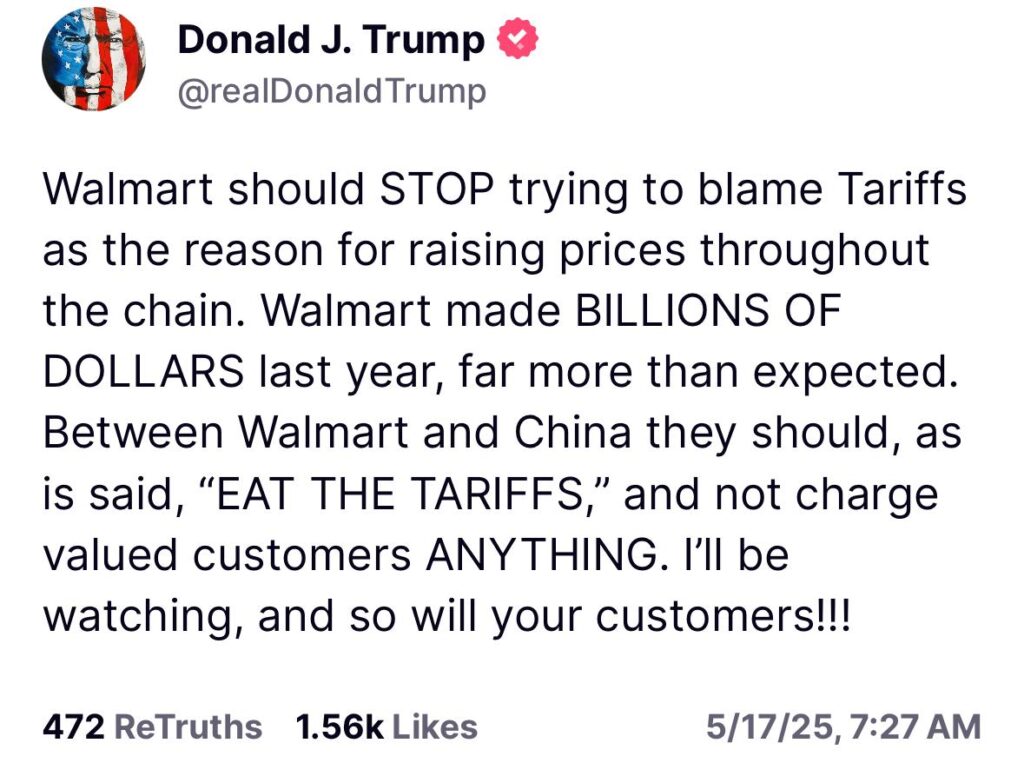President Donald Trump on Saturday criticized Walmart for linking higher prices to tariffs on Chinese goods. He said the retail giant should “eat the tariffs” instead of shifting the burden to customers.
Trump’s remarks followed Walmart’s warning that it would raise prices later this month due to increased import duties. “Between Walmart and China they should, as is said, ‘EAT THE TARIFFS,’ and not charge valued customers ANYTHING,” Trump posted.
Walmart responded by saying it has always tried to keep prices low and will continue to do so. In a statement, the company noted the challenge of maintaining margins in retail: “We’ll keep prices as low as we can for as long as we can given the reality of small retail margins.”
CEO Doug McMillon echoed that view. Speaking on Thursday, he said Walmart could not absorb all the added costs because of its thin margins. Still, he assured that the company would work to prevent tariff-related increases from spilling into food prices.

Walmart’s comments are a reminder of how U.S.-China trade tensions are pressing on the retail sector. As a company known for cost control, Walmart often sets the tone for broader retail trends. Its decision to speak publicly about tariffs reflects rising concern across the industry.
The company’s scale underscores its influence: 255 million people shop at Walmart each week worldwide, and 90% of Americans live within 10 miles of a store.
Walmart’s announcement follows a recent report that Amazon might reveal how tariffs affect its pricing. The White House pushed back hard on that report, which Amazon denied.
As trade disputes continue, large retailers face pressure to choose between profit margins and consumer prices—while the White House keeps the spotlight firmly on them.




